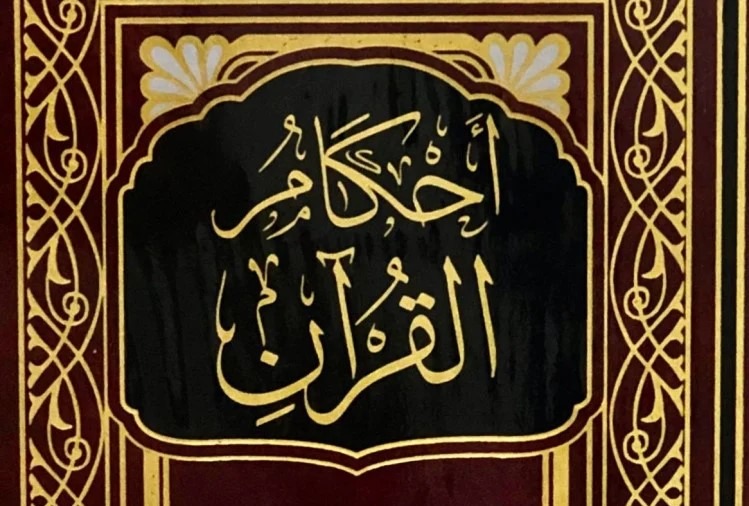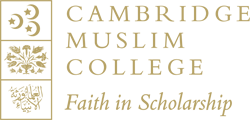In this seminar, Dr Ramon Harvey (Cambridge Muslim College Lecturer and Programme Lead, Research) explored the life of the significant early Ḥanafī jurist and exegete Abū Bakr al-Jaṣṣāṣ (d. 370/981) with a focus on his theological views and his contributions to the discourses of legal theory and Qur’anic interpretation. Al-Jaṣṣāṣ is a fascinating figure because he lived at a time after the establishment of the Ḥanafī juristic school, but before its crystallisation in later centuries. Settling in Baghdad, a major intellectual centre for the Ḥanafī school in the middle of the fourth/tenth century, al-Jaṣṣāṣ apprenticed under the jurist Abū al-Ḥasan al-Karkhī (d. 340/951) and to both elements of the ahl al-ḥadīth and the Muʿtazila, two of the prominent theological tendencies of the time.

Was al-Jaṣṣāṣ a Muʿtazilī?
After exploring his biography, Dr Harvey attended to an important question that is raised about al-Jaṣṣāṣ, namely, his contested commitment to Muʿtazilī theological doctrines. Drawing from a range of texts, he demonstrated al-Jaṣṣāṣ’ Muʿtazilism on a number of significant doctrines, including the Beatific vision, vis-à-vis academic interpretations that have either assumed this affiliation or downplayed it. Yet Dr Harvey highlighted the need for nuance in locating al-Jaṣṣāṣ, as his primary identification remained tied to the Ḥanafī school, which in his era was held to not conflict with Muʿtazilī theological views. In this context, practical examples were given of how al-Jaṣṣāṣ negotiated these two aspects of his intellectual formation.
The Legacy of al-Jaṣṣāṣ
Dr Harvey highlighted that al-Jaṣṣāṣ worked mainly as a commentator and compiler of the formative period of Ḥanafī thinking. Especially significant for his legacy are two late texts: Al-Fuṣūl fī al-ʿuṣūl, the earliest extant work of Ḥanafī legal theory (uṣūl al-fiqh), and Aḥkām al-qurʾān, a unique work of exegetical jurisprudence, which is organised like a Qur’anic commentary (tafsīr), but extensively applies his legal hermeneutics to vindicate Ḥanafī positions. This work has remained extremely influential within the school and beyond it.
A rich debate followed in the Q & A session, deepening the discussion of what it meant to be a Ḥanafī in the period during which al-Jaṣṣāṣ lived and exploring the themes of regionality and the Samarqandī school of Abū Manṣūr al-Māturīdī (d. 333/944), which was to become the main theological expression of Ḥanafism. The intriguing question was also raised as to why, despite its overt Muʿtazilism in places, Aḥkām al-qurʾān was never replaced with an equivalent but more theologically orthodox text.
A version of the paper presented at the seminar will appear within the volume , edited by Georges Tamer, which will be published by De Gruyter.
For more information about the Cambridge Muslim College Research Seminar, see here.
 Dr Ramon Harvey lectures in Islamic theology at Cambridge Muslim College. He undertook his postgraduate studies at SOAS, University of London, and also holds an ʿalimiyya qualification. His publications include monographs and articles in both Islamic theology and Qur’anic studies. Currently, his research focuses on kalām in early Māturīdism and on constructive Islamic theology, especially in conversation with Christian theology, analytic philosophy and phenomenology. He is Series Editor of Edinburgh Studies in Islamic Scripture and Theology, which is published by Edinburgh University Press.
Dr Ramon Harvey lectures in Islamic theology at Cambridge Muslim College. He undertook his postgraduate studies at SOAS, University of London, and also holds an ʿalimiyya qualification. His publications include monographs and articles in both Islamic theology and Qur’anic studies. Currently, his research focuses on kalām in early Māturīdism and on constructive Islamic theology, especially in conversation with Christian theology, analytic philosophy and phenomenology. He is Series Editor of Edinburgh Studies in Islamic Scripture and Theology, which is published by Edinburgh University Press.

